Bill McKibben: We’re Headed for Hell, or Some Place Like It
The environmentalist pleads his case for a Green New Deal and wonders why Barack Obama brags about his administration's oil production.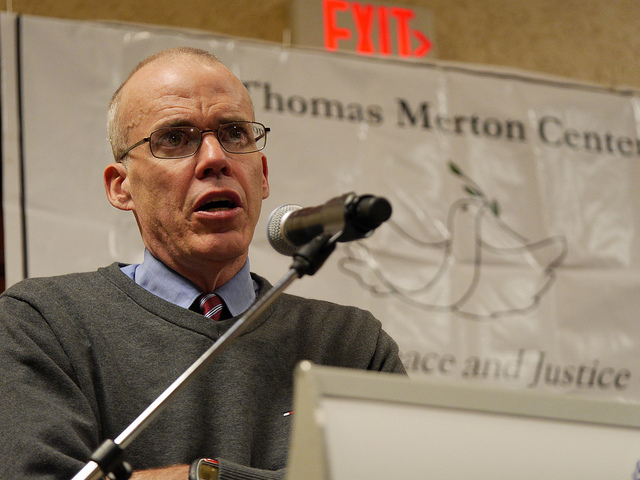 Author and environmentalist Bill McKibben. (Mark Dixon / Flickr)
Author and environmentalist Bill McKibben. (Mark Dixon / Flickr)
What follows is a conversation between environmentalist Bill McKibben and Dharna Noor of the Real News Network. Read a transcript of their conversation below or watch the video at the bottom of the post.
DHARNA NOOR: I’m here in Burlington, Vermont, where the Sanders Institute has convened hundreds of international civic leaders, artistic leaders, political leaders to address the problems of our age, like the economic crisis, social crises, and, importantly, the climate crisis. And I’m here with somebody who has been doing this for decades, for a very long time. Bill McKibben is a founder of 350.org, a leading environmental organization. He’s a leading environmentalist in his own right, and author of one of the first books on climate change for a mass audience. Thanks for being here today.
BILL MCKIBBEN: Hey. What a pleasure.
DHARNA NOOR: So we’re coming off of a panel where you moderated some leading minds on the climate crisis to talk about not only the problem itself, but what can be done about it; how we can address economic justice and environmental justice and racial justice together. Could you talk about where this idea of the Green New Deal has come from?
BILL MCKIBBEN: Yeah. I mean, this is an exciting moment, right? This was sort of at the beginning of a new idea–not that new. People have been talking in one way or another about a big, some kind of big infrastructure program that would deal with both our economic woes and our climate crisis. But it feels a little more real now. Clearly there’s something in the air. Part of that something in the air is smoke from the wildfires, and that helped galvanize people’s attention. Part of it’s this chain of reports that have come out from the Intergovernmental Panel on Climate Change, and the federal–even Trump’s federal government saying that climate change is a horrible, pressing problem. So we may be in a moment of some action.
DHARNA NOOR: It’s true. But you know, we’re up against so much. While so much movement is happening with Alexandria Ocasio-Cortez, and Representative Tlaib, from across the House, you know, there are so many others who are opposing this. You mentioned the Trump administration’s latest report, but they issued it on Black Friday, a day that nobody’s really watching what’s happening in the news. Talk about how we can overcome some of these struggles.
BILL MCKIBBEN: The only ways to win these fights are to build movements, because the fossil fuel industry has all the money. That’s their weapon. There’s no secret to it. They use it to bludgeon entire political parties into submission. But sometimes organized people can beat organized money if they get together in numbers large enough. And that’s what’s been happening increasingly over the last few years. There’s now enough human beings really scared and really determined to do something that I think the politicians won’t be able to hide this forever.
DHARNA NOOR: One, I think, reason that so many more people have sort of opened up to the idea of fighting the climate crisis is because of the number the sheer number of people who we’ve seen affected by it. And we’ve seen especially new trends in migration and the need for migration because of the climate crisis. But despite this, Trump and his administration have been working on a NAFTA 2.0 of sorts, which includes, again, huge subsidies to not only big pharmaceutical companies, but also fossil fuel industries. Could you talk a little bit about what the effect of that will be, and how we can mobilize against this kind of immigration policy?
BILL MCKIBBEN: The effect of NAFTA 1 was, among other things, to suddenly undermine a lot of peasant agriculture across Mexico. And that’s one of the reasons that so many people had to leave their homes. Now all of that pressure is exacerbated by a change in climate. So we look at, you know, people arriving from Guatemala and Honduras and Nicaragua. Partly that’s because there’s great violence in those places, but partly that’s because they’ve suffered through unprecedented droughts that are driving people into the cities and into the middle of that violence, and then eventually driving them out of the country altogether.
You see what happens in our current framework when a few thousand people show up at the border, and it causes a national freakout, that scientists, climate scientists tell us with great conviction that we’re looking at 150, 200, 300 million people on the move by the middle or latter part of this century. That’s the kind of thing that destabilizes the entire globe. I mean, people on the move is a recipe for trouble. That’s why one of the most important things we can try to do is slow down the climate crisis to the point where people don’t have to leave the places that they love.
DHARNA NOOR: And yet so often when the when talk of addressing the climate crisis in the U.S. is brought up, the issue that’s raised so often is the loss of jobs. Talk about how, within a Green New Deal, we can foster a just transition. Because despite its many issues, the New Deal had provisions to support labor organizing [crosstalk].
BILL MCKIBBEN: Yeah, absolutely. And a Green New Deal, one hopes, one assumes, would create lots of jobs. The transition to renewable energy is going to take a hell of a lot of people doing a hell of a lot of work. And there’s no reason, if done wisely, that those shouldn’t be good jobs. Among other things, one of the things that’s appealing about them is it’s difficult to outsource them. No one’s going to put their house on a boat and send it to China to get a solar panel put on top, or insulation stuffed in the walls. That needs to be done close to home.
DHARNA NOOR: In this climate I think so often the demons are thought of as those in the Republican Party. But we know that, of course, many Democrats are still accepting fossil fuel contributions. One aspect of the Green New Deal that Alexander Ocasio-Cortez and the Sunrise Movement are championing is to stop fossil fuel contributions. President Barack Obama sort of boasted that he and his administration boosted our oil and gas industry. Could you talk about just what the response to that has been, and what it should be?
BILL MCKIBBEN: There’s no question that we’re in a worse country than we were when Barack Obama was running it. I mean, there’s no question. On the other hand, I helped organize the biggest demonstrations against Barack Obama while he was in office precisely because their coziness with the oil and gas industry was leading them to approve pipelines and things willy nilly. I’m surprised, actually, to hear him boasting about it now, because I don’t think it’s something that reflects well on his administration. There are other things from the Obama years that I’d boast about if I were him.
DHARNA NOOR: Why are we calling it a Green New Deal? What is the, why are we invoking the same name as FDR’s New Deal?
BILL MCKIBBEN: Well, because that was one of the last times that we looked systemically at our economy; not taking little piecemeal things here and there, but really making some big, powerful moves. One of the things that’s important to remember about the New Deal, and that I hope the Green New Dealers will remember, is that it also involved a lot of experimentation. Some of the things they tried early on didn’t work, so they quickly abandoned them and went to other things. And that’s good. Pragmatism is important here. Any discussion around climate change is held honest by the physics of this dilemma.
DHARNA NOOR: And just lastly, could you talk about the stakes if we don’t usher in this kind of Green New Deal?
BILL MCKIBBEN: If we don’t do something here and around the world quickly, then we’re headed, if not to hell, then to a place with a very similar temperature.
DHARNA NOOR: Great. Thank you so much. Bill McKibben, thanks for being with us today.
BILL MCKIBBEN: Thank you.
Your support matters…
Independent journalism is under threat and overshadowed by heavily funded mainstream media.
You can help level the playing field. Become a member.
Your tax-deductible contribution keeps us digging beneath the headlines to give you thought-provoking, investigative reporting and analysis that unearths what's really happening- without compromise.
Give today to support our courageous, independent journalists.

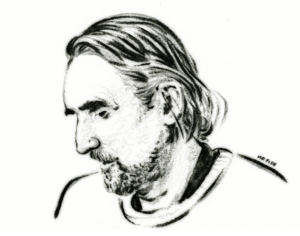

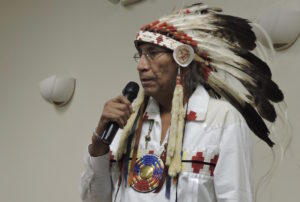
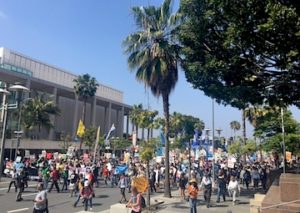
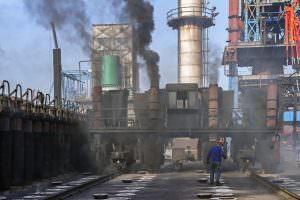
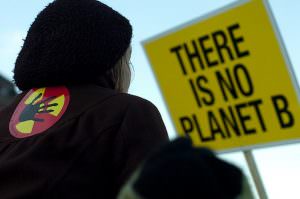


You need to be a supporter to comment.
There are currently no responses to this article.
Be the first to respond.